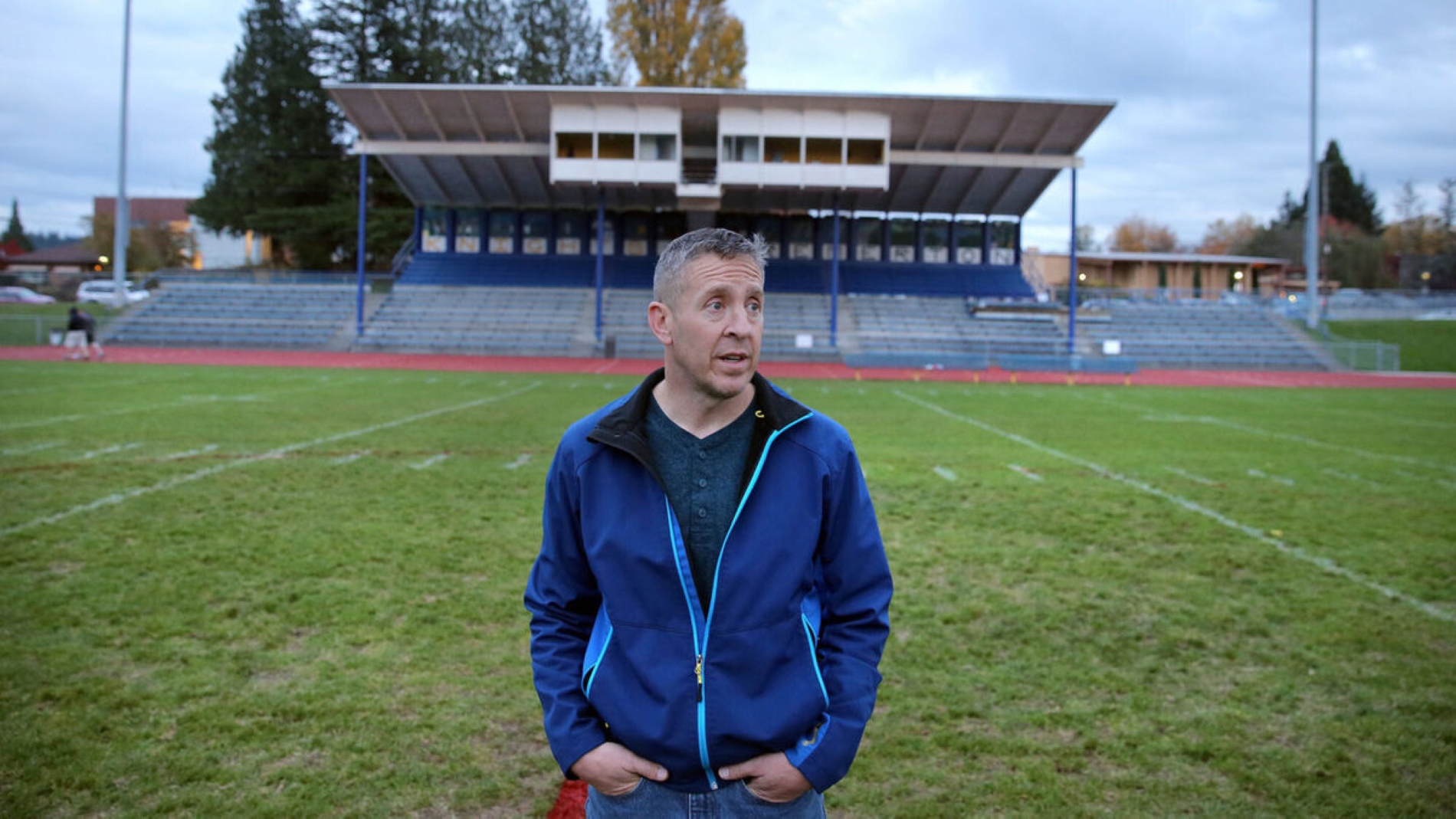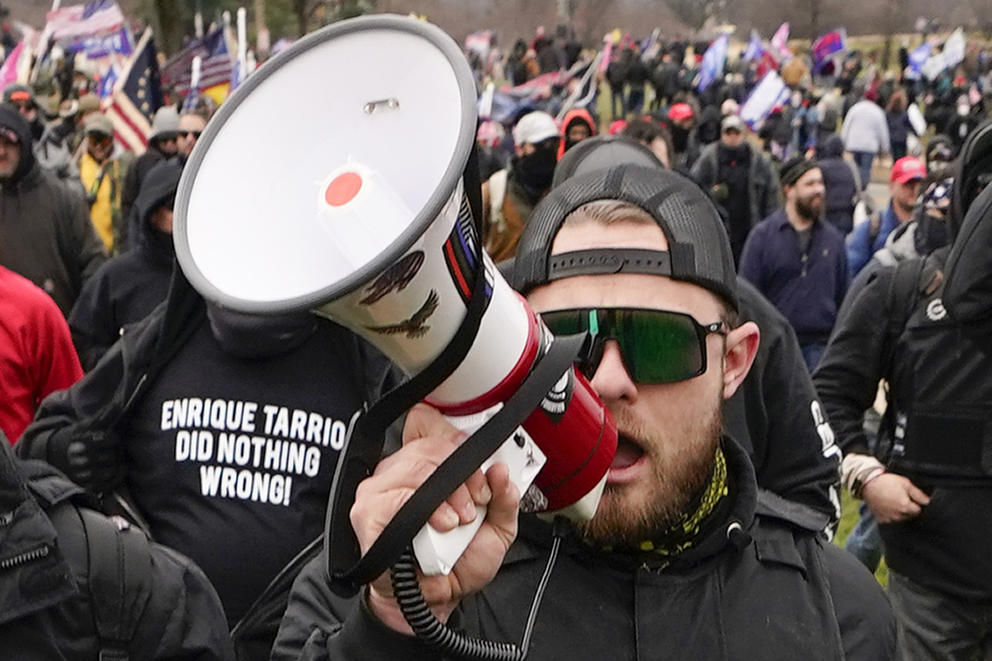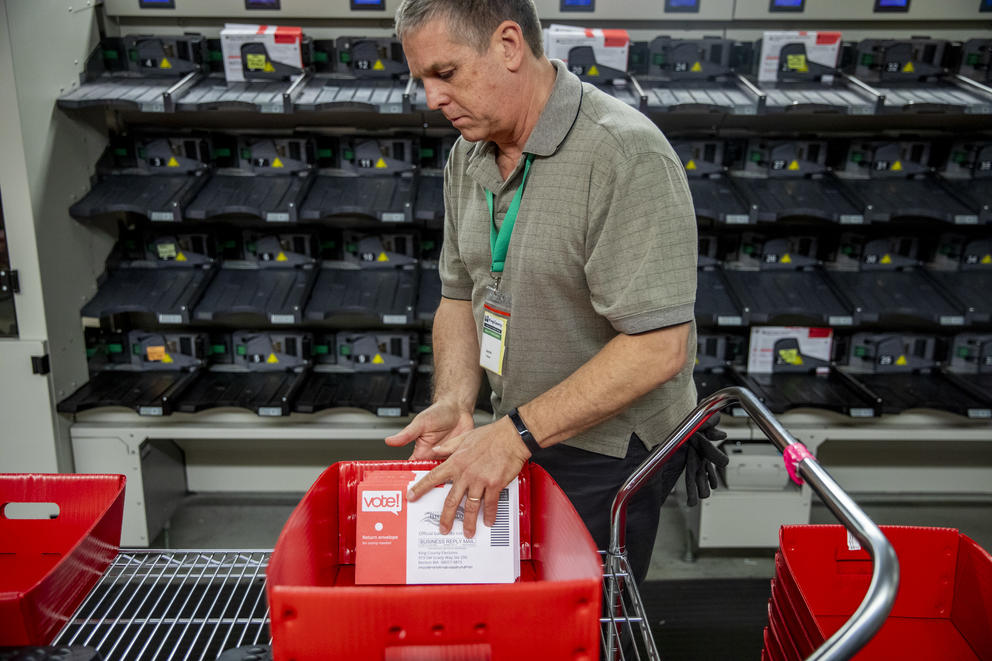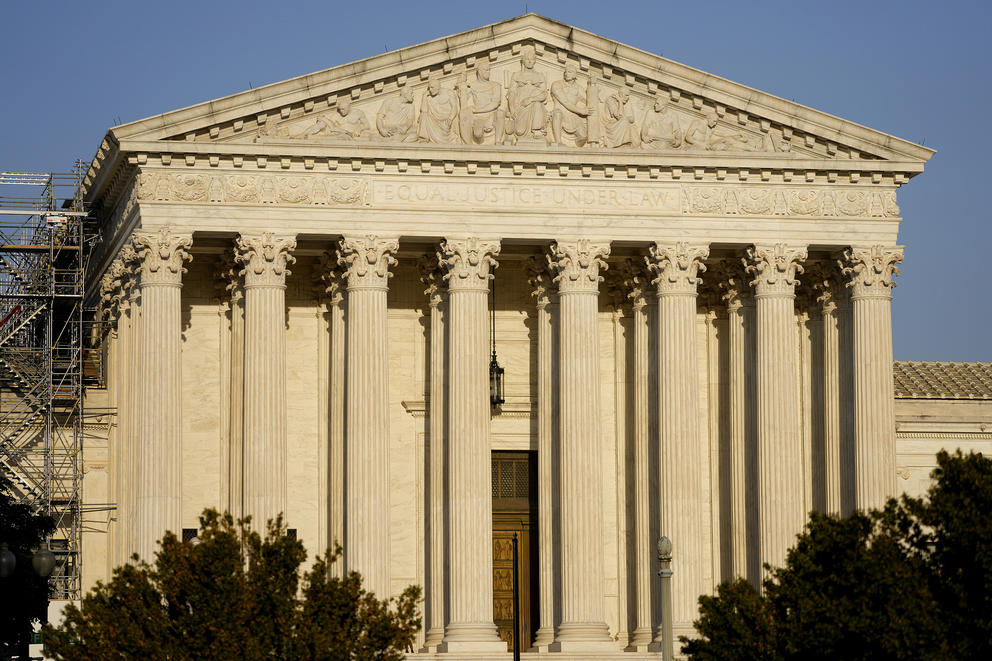Police pursuits measure likely headed to Washington’s 2024 ballot

Seattle Police officers during May Day protests in 2019. (Photo by Matt M. McKnight/Crosscut)
Let’s Go Washington announced Tuesday it is submitting petitions for an initiative to loosen restrictions around when law enforcement officers can engage in vehicle pursuits.
The group, which is funding a series of proposed conservative ballot measures, said it turned in more than 400,000 signatures to the Secretary of State’s Office for Initiative 2113. That’s the third of six proposed initiatives the group is bringing to the Legislature but expects will be up for a statewide vote next November.
In a statement, Let’s Go Washington founder Brian Heywood said, “Communities across the state are suffering impacts of rising crime while lawmakers tell them not to believe their eyes.”
“Local police, mayors and city councils should not be stuck with a one-size-fits-all policy that keeps police from doing their job,” he added. “Handcuffing police is a failure and regular Washingtonians are paying the price.”
In 2021, lawmakers tightened the circumstances around which law enforcement officers can engage in police pursuits. The law was one of roughly a dozen measures to change policing after the deaths at the hands of police of George Floyd in Minneapolis and Manuel Ellis in Tacoma, among other people of color.
Lawmakers in the Democratic-controlled Legislature last year then loosened the new restrictions a little, but it has not dampened criticism from conservatives.
I-2113 would allow pursuits when officers have “a reasonable suspicion a person has violated the law” in instances where “pursuit is necessary to identify or apprehend the person, the person poses a threat to the safety of others, those safety risks are greater than those of the pursuit, and a supervisor authorizes the pursuit,” according to the ballot measure summary.









